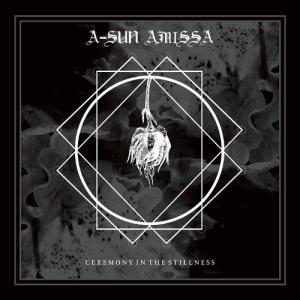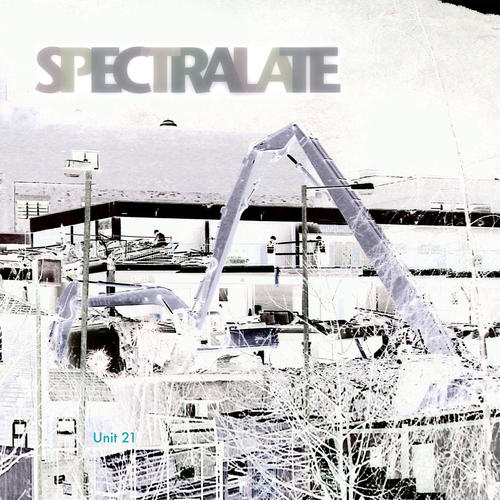Gizeh
 I imagine that Richard Knox, head honcho of the wonderful Gizeh Records, uses A-Sun Amissa as a kind emotional bloodletting, giving himself the opportunity to move in the kind of rarefied places and breathe in those mystical atmospheres that his other musical charges do.
I imagine that Richard Knox, head honcho of the wonderful Gizeh Records, uses A-Sun Amissa as a kind emotional bloodletting, giving himself the opportunity to move in the kind of rarefied places and breathe in those mystical atmospheres that his other musical charges do.
Following closely on the heels of 2017’s
The Gatherer‘, this latest album ups the ante on previous releases, with more sonic weight being added — but not at the expense of the slow and stately progression that is so much a part of their appeal. Moving in similar circles to
Earth and
Nadja, opener “The Black Path” resonates with protracted, pregnant guitar chords, the power really emanating from the slowly strummed strings. Mysterious
swirling eddies nourish the backdrop, leaving plenty of space to allow the imagination free rein. Where A-Sun Amissa differ form their peers is the emotion that resonates. There is a sense here that although the guitars command your attention, there is a forgiveness, a kind of benevolence that that tries to allay the wounded feedback in which the track culminates.
At times, the sense of watching distant storm clouds assails “With Wearied Eyes” that follows a similar refrain to the previous track, but at a more sombre tempo and with a sparser feel. A spare, clean guitar line is plucked from the sky and descends entwined with further shimmering sprinkles that reflect like sunlight on water. They join in with the sibilant exhalation of a sigh denoting
Jo Quail‘s cello, ministering to the track, allowing it a pillow of remembrance, of familiarity that softens the feeling a little further. The way the cello and guitar merge is so subtle that at times it is barely discernible; the cello often sounding as though it is coming
from deep underground, or somehow out of our sphere of understanding, while the power and repetition of the guitar anchors us in the moment.
The addition of David McClean‘s rather macabre sax on “The Skulk” changes mood dramatically. All is sinister and dark, obscured by windswept foliage, and the combo of sax and cello is far from welcoming; the chattering field recordings act as a warning, attempting to spare you from some terrible limbo. When the cello and sax break free of their growling murk and the mists swirl and clear, there is a melancholy jazz tinge to the track that I wasn’t expecting, Christine Ott‘s ondes martenot adding pulsing flickers of light to break up the sepulchral gloom.
There is serious momentum on “No perception Of Light”, the addition of a military drum beat giving us a further change of atmosphere, further dispelling the sense of gravity and leading us into the closer “Remembrancer”, with its strummed chords, vibrant and searching, trying to provide a powerful outro. They finally giving way to perhaps a more fittingly mournful finale as the guitar drops its head and languorous strings usher the album to a close.
It is impressive to think that as well as running the label, Richard has time to orchestrate an album of this intensity. Ceremony In The Stillness sweeps and drifts in all the right places, but never leans oppressively on the listener. Immersive and satisfying, it is highly recommended.
-Mr Olivetti-
 I imagine that Richard Knox, head honcho of the wonderful Gizeh Records, uses A-Sun Amissa as a kind emotional bloodletting, giving himself the opportunity to move in the kind of rarefied places and breathe in those mystical atmospheres that his other musical charges do.
I imagine that Richard Knox, head honcho of the wonderful Gizeh Records, uses A-Sun Amissa as a kind emotional bloodletting, giving himself the opportunity to move in the kind of rarefied places and breathe in those mystical atmospheres that his other musical charges do.


